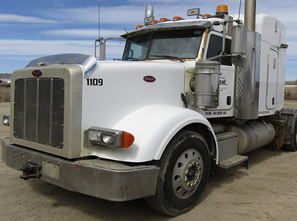
California approves mandate to end combustion truck sales
The California Air Resources Board (CARB) approved a first-of-its-kind rule that requires a phased-in transition toward zero-emission medium-and-heavy duty vehicles.
Known as Advanced Clean Fleets, the new rule helps put California on a path toward accomplishing Gov. Gavin Newsom’s goal of fully transitioning the trucks that travel across the state to zero-emissions technology by 2045. The new rule is expected to generate $26.6 billion in health savings from reduced asthma attacks, emergency room visits and respiratory illnesses. Furthermore, fleet owners will save an estimated $48 billion in their total operating costs from the transition through 2050.
While trucks represent only 6% of the vehicles on California’s roads, they account for over 35% of the state’s transportation generated nitrogen oxide emissions and a quarter of the state’s on-road greenhouse gas emissions. California communities that sit near trucking corridors and warehouse locations with heavy truck traffic have some of the worst air in the nation. California is set to invest almost $3 billion between 2021 – 2025 in zero-emission trucks and infrastructure. This investment is a part of a $9 billion multi-year, multi-agency zero-emissions vehicle package to equitably decarbonize the transportation sector that was agreed upon by the Governor and the Legislature in 2021.

Under the new rule, fleet owners operating vehicles for private services such as last-mile delivery and federal fleets such as the Postal Service, along with state and local government fleets, will begin their transition toward zero-emission vehicles starting in 2024. The rule includes the ability to continue operating existing vehicles through their useful life. Due to the impact that truck traffic has on residents living near heavily trafficked corridors, drayage trucks will need to be zero-emissions by 2035. All other fleet owners will have the option to transition a percentage of their vehicles to meet expected zero-emission milestones, which gives owners the flexibility to continue operating combustion -powered vehicles as needed during the move toward cleaner technology. The flexibility is intended to take into consideration the available technology and the need to target the highest-polluting vehicles. For example, last mile delivery and yard trucks must transition by 2035, work trucks and day cab tractors must be zero-emission by 2039, and sleeper cab tractors and specialty vehicles must be zero-emission by 2042.
Information Source: Read More “
Energy Monitors , Electric Power , Natural Gas , Oil , Climate , Renewable , Wind , Transition , LPG , Solar , Electric , Biomass , Sustainability , Oil Price , Electric Vehicles,

